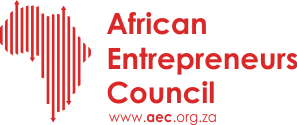Opportunities for SA manufacturers in Francophone Africa
As weak domestic economic conditions take a toll on South African manufacturers, experts say Francophone Africa – a territory often overlooked by local companies – offers significant opportunities.
“Exporting into the rest of Africa has already saved a lot of jobs in this country…we exported close to R300 billion worth of goods last year and the bulk of our African exports were manufactured. So we’re already doing that but we tend to concentrate, at the moment, in Southern Africa and to a much lesser degree in East Africa and then little isolated pockets like Ghana,” Duncan Bonnet, a director at Africa House said on the sidelines of an investment forum organised by the French Embassy.
According to Bonnet, economies across the continent, barring exception of South Africa, Nigeria and Angola, boast growth rates of around 5% per annum. He added that the likes of Cameroon, Côte d’Ivoire and the Democratic Republic of the Congo (DRC) could be used as gateways into larger African markets.
Despite the slowdown global economic growth, data from Africa House shows the total value of exports into the three countries rose by 68% from 2010 to $25 billion in 2015.

With a market of 20%, South Africa was the largest exporter to the DRC from 2010 to 2014. In 2015, South African exports, including machinery, iron and steel products, mineral products, chemicals, plastics and rubber, comprised 90% of goods procured by the DRC. Given the string presence of South African miners in the country’s Katanga Province, this was to be expected, Bonnet said. South Africa holds around 1% of the export market share in the Côte d’Ivoire and even less in Cameroon, however the bulk of South African exports to two nations comprise value-added goods.
Both Khanysile Kweyama, the CEO of Business Unity South Africa, and George Sebulela, chairman of the Black Business Council, said South African companies were hesitant to venture into Francophone Africa due to language barriers, concerns over political stability and the perception that French companies dominate business in these territories.
Diplomatic representatives from several Francophone countries sought to allay potential investors’ fears over political stability. They also said South African companies should ensure they select good local partners in order to help them navigate the business landscape as well as language and cultural peculiarities in each country.
“South Africa’s biggest competitor in Cameroon is not France, it is Nigeria,” said Yves-Justice Djimi, the Head of AfricaFrance in South Africa. He said the OHADA (Organisation for the Harmonisation of Business Law in Africa) legal system, a set of business laws adopted by 16 Francophone Africa, as well as the two CFA franc currencies, which are guaranteed by the French treasury and used in 14 nations in Central and West Africa, would provide some stability and harmony to companies wishing to do business in the region.
“Going into countries that we’re not linguistically or culturally familiar with shouldn’t be an impediment if you do your homework right and if you’re prepared to put effort in, in terms of your branding, marketing, partners and distribution. Do it properly, just the way you would for Zambia or the UK or anywhere else and those,” said Bonnet, adding that JC le Roux is the top selling sparkling wine in Angola, with a 70% market share.

Original Article at: http://www.moneyweb.co.za/news/africa/opportunities-sa-manufacturers-francophone-africa/





Sorry, the comment form is closed at this time.